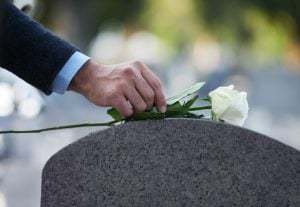In my previous column I reviewed a children’s book written by a lawyer explaining what lawyer moms do at work. So I figured it made perfect sense to follow up with a post about a book written by women lawyers for women lawyers. The book is aptly titled “50 Lessons for Women Lawyers From Women Lawyers.” It was published last year and is edited by Nora Riva Bergman, a lawyer who is a certified practice advisor for lawyers.
The timing couldn’t be better for a book like this. Women have been graduating from law school at rates similar to their male colleagues for more than a decade now, but according to a report issued by the ABA last year, “The 2019 Profile of the Legal Profession,” the percentage of women lawyers who are actively practicing law has remained stagnant for the past three years.
By way of comparison, the number of actively practicing women lawyers in 2009 was 31%. That percentage has only increased slightly since, with the ratio of men to women lawyers at nearly 2:1 in 2019; 64% of lawyers were men, while only 36% are women.
For that reason, whenever I learn that a young woman in my family is interested in becoming a lawyer, I jump onto my soapbox and provide a host of unsolicited advice about practicing law as a woman. I can’t help myself; I want to fully prepare her for the realities of law practice. And, I want her to understand that her vision of what her career path as a lawyer will look like and her definition of success will undoubtedly change over time — and that’s okay.
Or, as I explain in Lesson 6 in this book:
You define success, no one else. It is so important for young attorneys — especially women — to acknowledge and embrace this concept … [Y]ou need to define success for yourself and understand that your concept of success must be flexible, since both time and your frame of reference tend to alter your vision of success as well. If you buy into someone else’s concept of “success,” you are bound to be miserable.
Of course, that advice is offered from my particular perspective based on my experience as a woman attorney; not all women lawyers — or lawyers in general — would necessarily agree with me. But that’s the great thing about this book: it offers 50 different lessons from 50 different women lawyers, all of whom have had diverse career paths that inform their unique perspectives.
For example, in Lesson 2, Heidi Alexander, the deputy director of Lawyers Concerned for Lawyers, provides her take on the value of being flexible and embracing change as you navigate your career path:
Oftentimes, as attorneys, we are forced to put up a facade. We do it to appear confident and serve as the most effective advocate for our clients. This makes it even more difficult for us to let go and embrace change. Sometimes removing that facade … can produce remarkable results … I encourage you to stop and “smell the flowers.” It may lead you to new experiences and opportunities, and even satisfaction in your life and career.
In Lesson 10, Maria-Vittoria “Giugi” Carminati, a women’s advocate, intersectional activist, and blogger offers this astute and succinct piece of advice that all lawyers should follow: “Other lawyers will take as much as they can from you if you let them. Don’t let them; it’s not worth it.”
Anne Kevlin, managing partner for a national insurance defense law firm, tackles gaslighting in the workplace in Lesson 25. She explains why it’s important to be able to recognize it and selectively ignore the message sent by a colleague who uses that manipulative tactic in the workplace:
Especially for women, confidence can be elusive. By focusing on what others think of us, rather than our own sense of right and wrong, good and bad, and what works for the paths we choose for ourselves, we lose our own view of what we bring to the table. Women should instead focus on the successes and achievements we have accomplished in our careers, and the lessons we have learned when things didn’t go according to plan. Trusted superiors, peers, mentors, or friends and family members who do not work with us, may be the best judge of what is fair criticism and what is inappropriate gaslighting.
Mistakes and how to handle them are the focus of Lesson 32. Paula Litt, a partner in the Chicago office of Honigman LLP, explains that, “Mistakes happen, even to the best. Understand them, deal with them, learn from them. And move on.” According to Litt, this is advice that all lawyers should take to heart, but women lawyers in particular need to master this lesson, since we’re seen as “interlopers in a man’s world … [and] cannot allow our mistakes and how we handle them to feed the narrative.”
Last, but not least, in Lesson 48, Jeanine Williams, a chief assistant attorney for the City of St. Petersburg, Florida, implores women lawyers to learn to say no. Otherwise you end up agreeing to partake in activities that interfere with your life goals. So she suggests that you take time to prioritize your goals, and then start declining to participate in anything that diverts you from your goals:
If you need to start small, do so. Say “no” when someone tries to sell something to you. Work your way up to saying “no” to small favors. Then, it’s time to take it up to the big asks. You’re not saying “no” to the person, you’re saying “no” to the question. More importantly, you’re saying “yes” to something you value more.
And that’s just a taste of the insightful and useful advice that you’ll find in this book. There’s lots more where that came from. So what are you waiting for? Grab a copy for yourself today or give a copy to the woman lawyer (or future lawyer) in your life. You won’t regret it.
Nicole Black is a Rochester, New York attorney and Director of Business and Community Relations at MyCase, web-based law practice management software. She’s been blogging since 2005, has written a weekly column for the Daily Record since 2007, is the author of Cloud Computing for Lawyers, co-authors Social Media for Lawyers: the Next Frontier, and co-authors Criminal Law in New York. She’s easily distracted by the potential of bright and shiny tech gadgets, along with good food and wine. You can follow her on Twitter at @nikiblack and she can be reached at niki.black@mycase.com.










 Jordan Rothman is a partner of
Jordan Rothman is a partner of 




